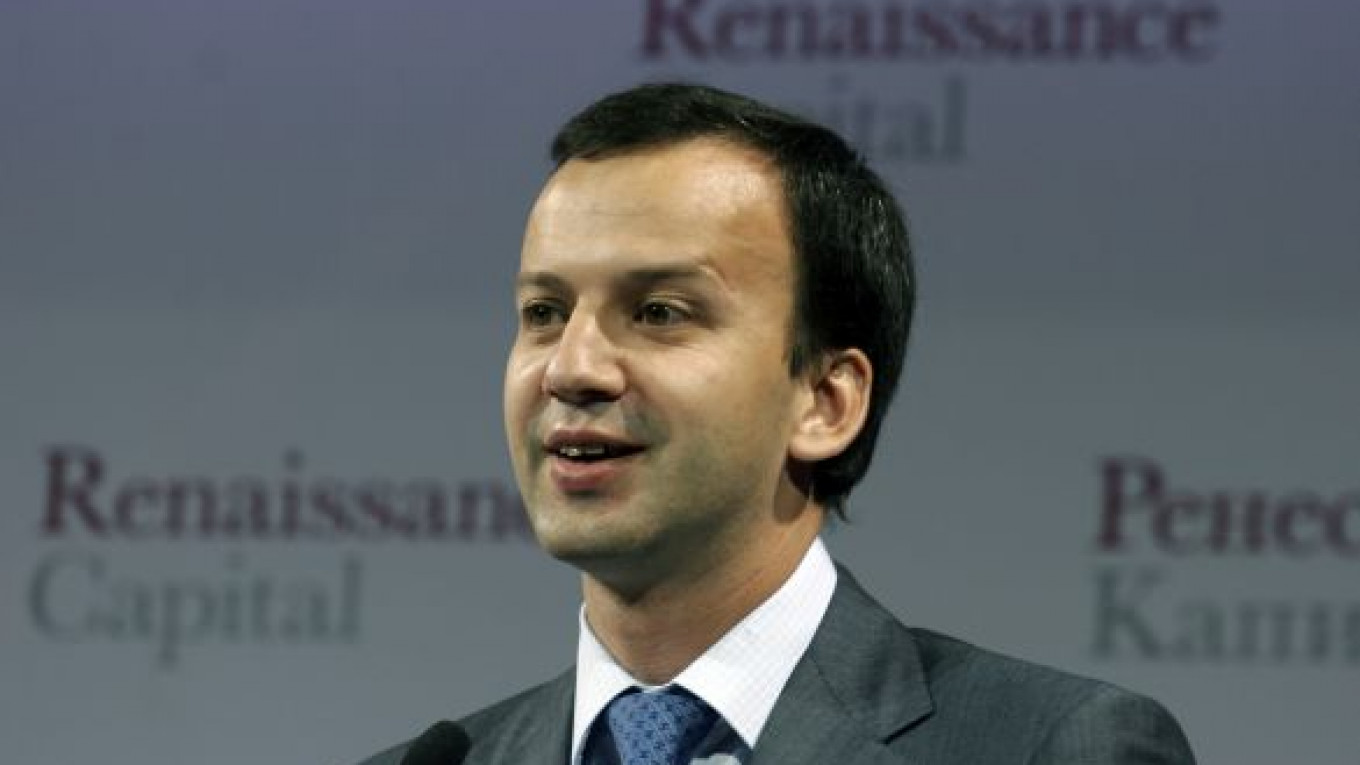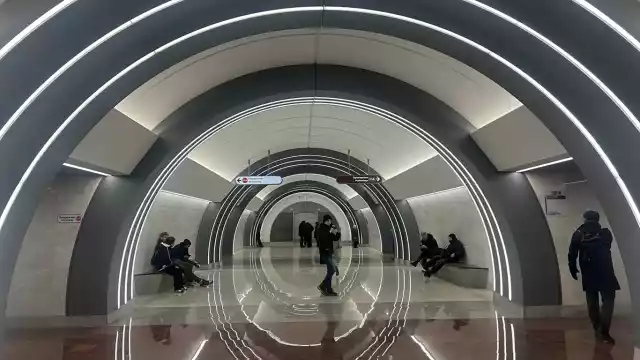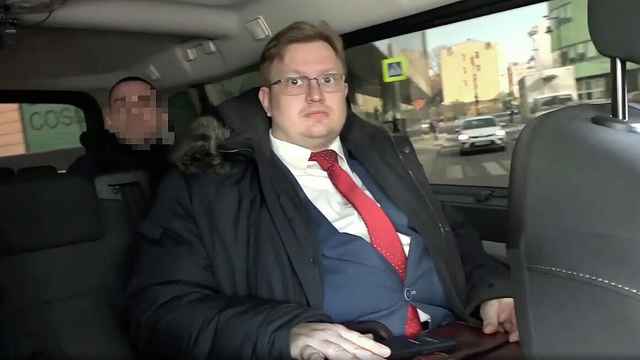The United Russia party should not be allowed to form a monopoly on waste processing and recycling, Kremlin economic adviser Arkady Dvorkovich said Friday, even though the party has announced a new project to “dominate” the field over the next few years.
“No one company should dominate this market. And I think that there is every opportunity for hundreds of companies to work in this sphere,” Dvorkovich said at a news conference, ahead of Monday’s meeting of the government modernization committee.
The commission is to discuss a new bill drafted by the Natural Resources and Environment Ministry designed to attract investors to recycling and waste processing.
Concerns were raised that political appointees were planning to exclude outside investors from the sector when United Russia announced an agreement with Russian Technologies to create a nationwide waste processor and recycling company.
The party said the new company, which will be registered by the end of July, would aim for a dominant position on the waste processing market in two to three years.
The Russian waste processing market was estimated at 1.3 billion euros ($1.85 billion).
In a clear bid to dispel unease, Dvorkovich promised that if "abuse of administrative resources to achieve privileged positions" occurred then "other companies operating in the market will have every opportunity to address the antitrust authorities."
Dvorkovich's comments were echoed by Natural Resources and Environment Minister Yury Trutnev, who called a monopoly in the area "impossible."
"I don't think any social, political or economic force should be able to monopolize this sphere," he said, but he refused to rule out political involvement in the sector, adding that "the more parties are involved, the faster we'll clean up Russia."
Dvorkovich made it clear that the government hoped to attract multiple investors to work in waste management and recycling in the coming years, but made no comment on which companies might be interested.
The latest meeting of the commission, which brings together presidential aides and finance, environment and energy ministers, will be focused on "what needs to be done to reduce emissions, increase energy efficiency and improve the environmental situation in general," Dvorkovich said.
A law on safety in offshore oil and gas extraction will come into force by the end of the year, Dvorkovich said.
The law, which will require oil companies to present oil spill response plans and set aside financial resources and equipment to deal with such a spill, was introduced following last year's Gulf of Mexico oil spill.
Nuclear Leaks
Russian proposals for tightening international oversight of the global nuclear industry have received "near unanimous" support, said Rosatom chief Sergei Kiriyenko at Friday's news conference.
"In principle, no one is arguing — it's hard to argue with this. But there is debate about what should be obligatory and what countries should be able to do for themselves," he said.
President Dmitry Medvedev presented his own blueprint for increased nuclear safety at the Group of Eight summit in Paris, including strengthening IAEA oversight and establishing infrastructure requirements for countries just beginning to develop nuclear power.
On Thursday, the European Commission announced that Russia and six other countries had agreed to reassess their existing and planned power plants using stress tests developed by the European Union as a reference.
Russia has been pushing for tighter regulation in a bid to avert a global rejection of nuclear power following the Fukushima nuclear disaster in March.
Kiriyenko, whose company has projects in 39 countries, claimed that abandoning nuclear power would lead to a 30 percent rise in carbon dioxide emissions.
But Russian environmentalists have accused the government of seeking to distract attention from problems in the domestic nuclear complex.
Last week, a leaked report indicated serious safety concerns in the sector.
"Russian power stations can withstand earthquakes, tsunamis and being hit by airplanes. In Japan, they built on the coast in an earthquake and tsunami zone. We can't build in such places by law," Kiriyenko said at the news conference.
At a meeting with Prime Minister Vladimir Putin later Friday, Kiriyenko said Rosatom would spend 15 billion rubles ($532 million) to raise safety standards to "post-Fukushima" levels this year or next.
Last week, environmentalists leaked an internal government report that listed more than 30 shortcomings in the nuclear industry.
The report, seen by The Moscow Times, warns that "seismic activity" in areas around nuclear power stations has been underestimated, some power stations lack automatic shutdown mechanisms to protect against earthquakes, and construction at most nuclear power plants "does not meet the requirements of current legislation on stresses from extreme external natural influence."
In addition to questioning construction, the report blamed a lax safety culture in the nuclear complex for an underestimation of the number of its procedural violations.
"There is no effective account of experience in the operating organization. This leads to poor investigation of safety violations, low-quality corrective measures, and a recurrence of violations for the same reason," the report says.
It also warned that a lack of storage and reprocessing facilities means that nuclear waste is building up at reactors.
The unusually frank list of problems is catalogued in an appendix to a draft version of a general report on environmental issues apparently prepared for the State Council meeting held in Nizhny Novgorod on June 9.
Vladimir Slivyak of EcoDefense, the environmental lobby group that leaked the document, said he had been unable to verify whether it had been included in the version of the report presented to President Dmitry Medvedev at the meeting.
A Message from The Moscow Times:
Dear readers,
We are facing unprecedented challenges. Russia's Prosecutor General's Office has designated The Moscow Times as an "undesirable" organization, criminalizing our work and putting our staff at risk of prosecution. This follows our earlier unjust labeling as a "foreign agent."
These actions are direct attempts to silence independent journalism in Russia. The authorities claim our work "discredits the decisions of the Russian leadership." We see things differently: we strive to provide accurate, unbiased reporting on Russia.
We, the journalists of The Moscow Times, refuse to be silenced. But to continue our work, we need your help.
Your support, no matter how small, makes a world of difference. If you can, please support us monthly starting from just $2. It's quick to set up, and every contribution makes a significant impact.
By supporting The Moscow Times, you're defending open, independent journalism in the face of repression. Thank you for standing with us.
Remind me later.






